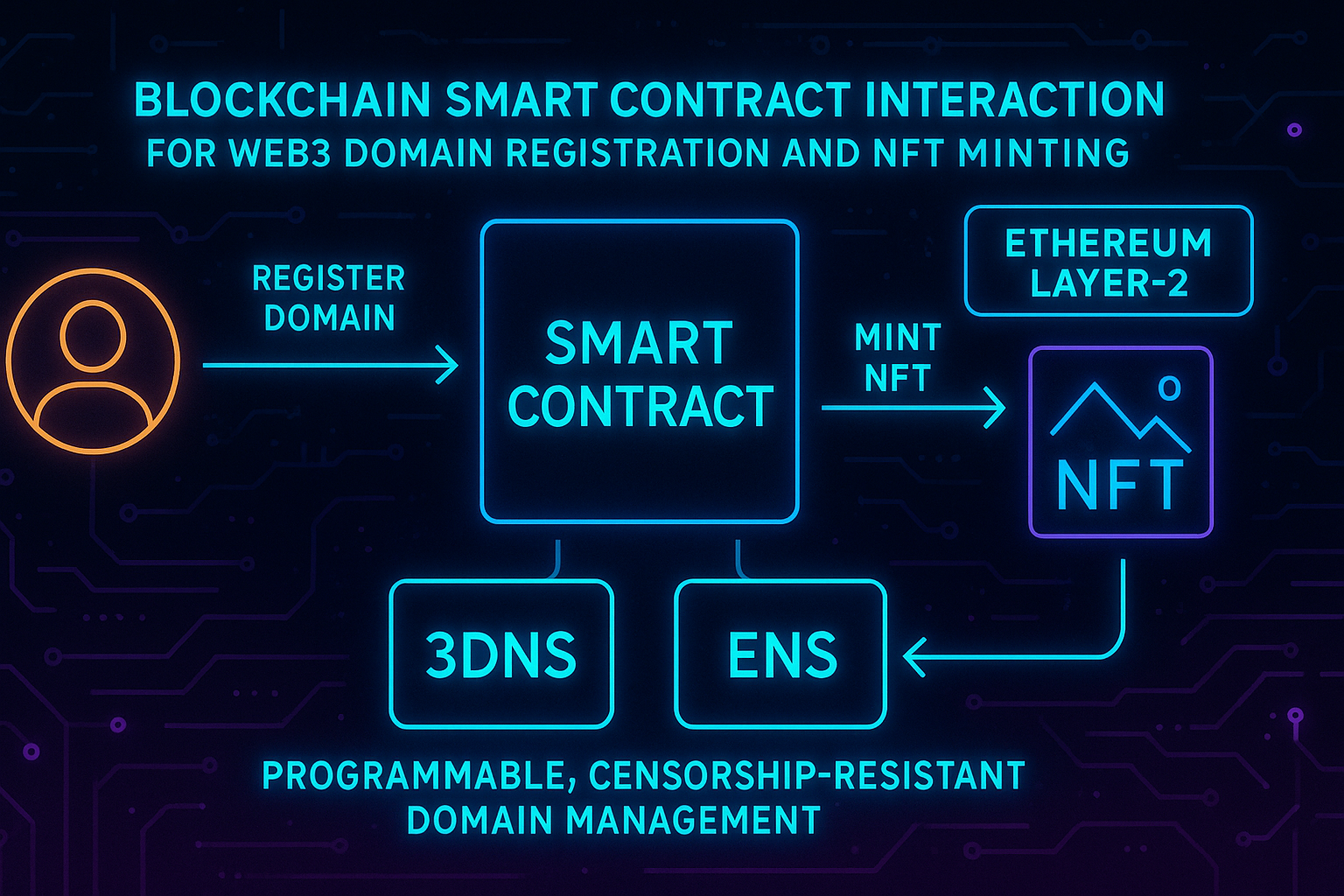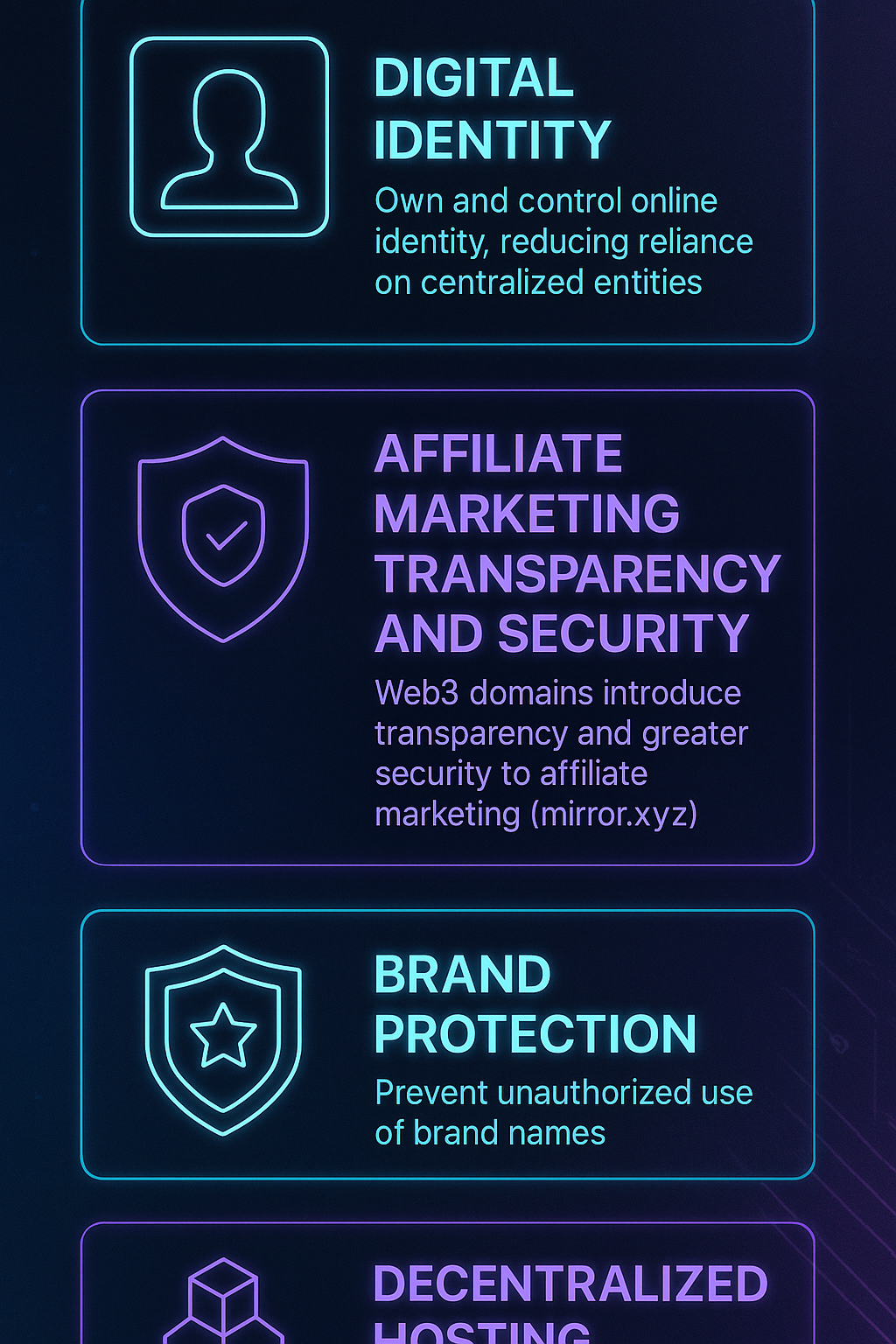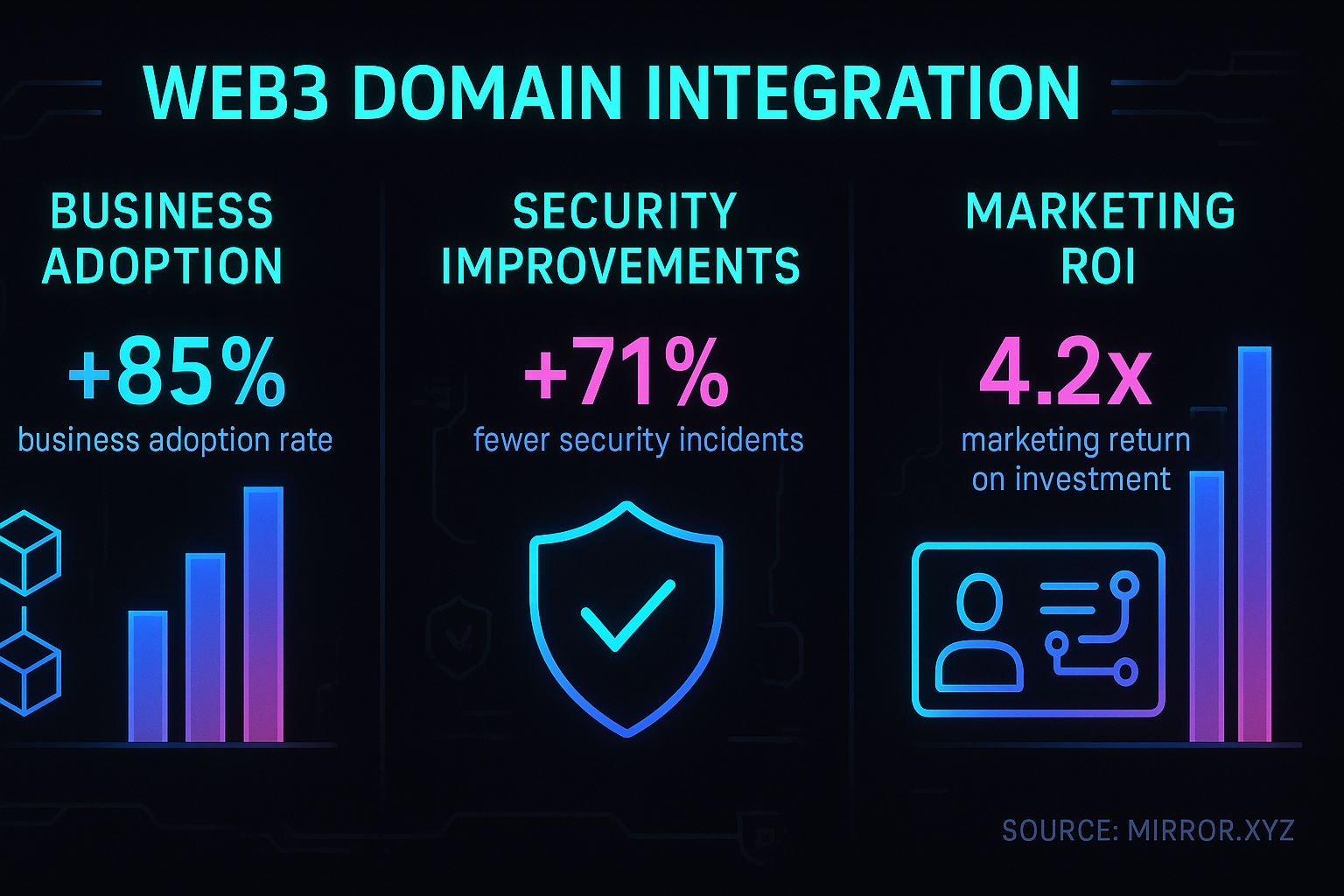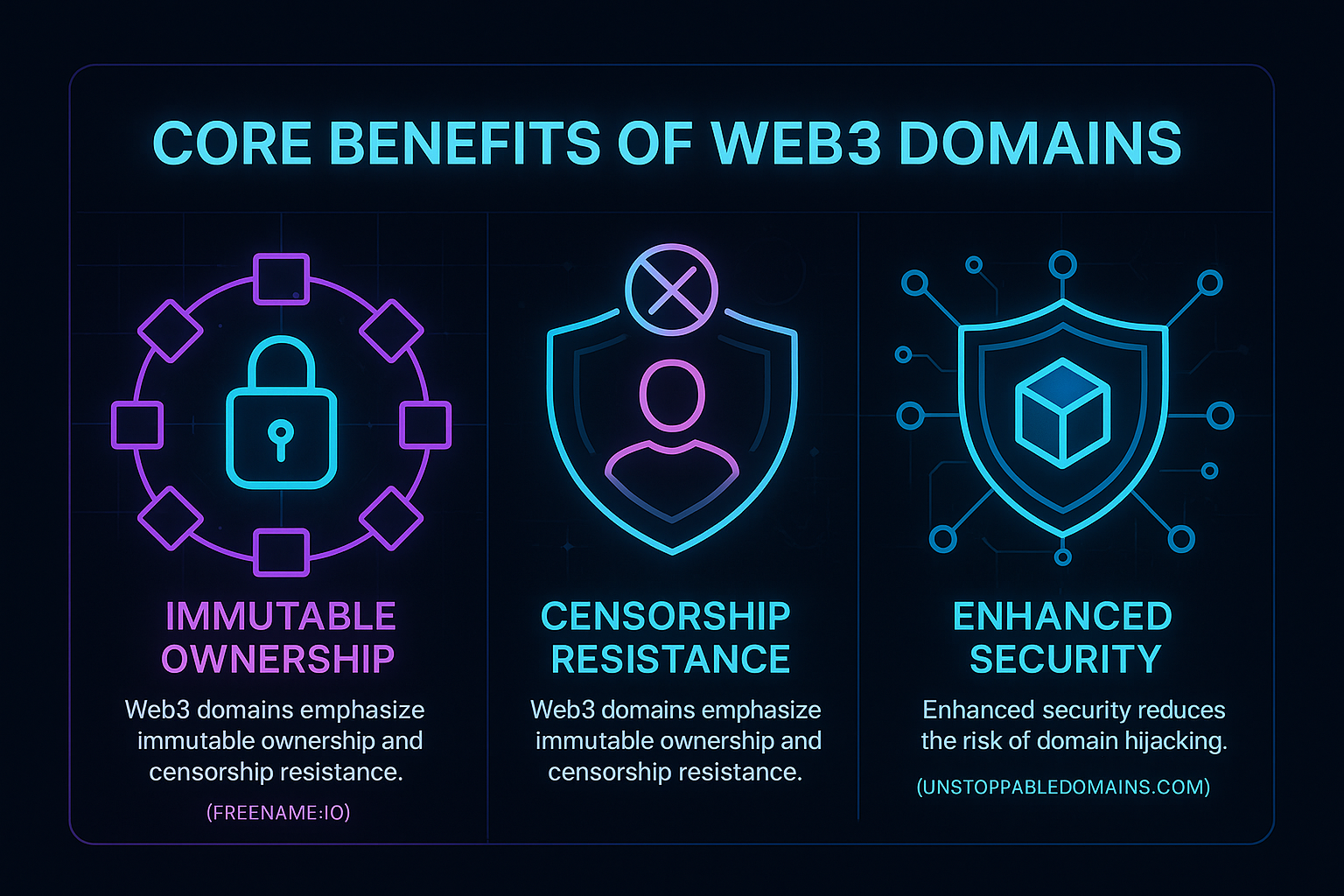Table of Contents
- Introduction
- Core Benefits of Web3 Domains
- How Web3 Domains Work
- Use Cases for Web3 Domain Management
- Why Businesses Should Consider Web3 Domains
- Challenges and Future Outlook
- Conclusion
- Resources
Introduction
The digital landscape is evolving rapidly, and one of the most profound shifts underway is the adoption of Web3 domain management. As reliance on centralized systems exposes users to increasing risks of censorship, security breaches, and loss of ownership, the rise of decentralized, blockchain-based domains marks a breakthrough in user sovereignty and security. This guide explores why understanding the benefits and use cases of Web3 domain management is essential for both businesses and individual users striving for autonomy in the decentralized web ecosystem.
What is Web3 Domain Management?
Web3 domain management refers to the administration and control of Web3 domains—digital assets rooted in blockchain technology that empower users with decentralized ownership and management of online identities. Unlike traditional domains governed by centralized authorities, Web3 domains are minted as NFTs, stored in users’ wallets, and entirely controlled by their owners without intermediaries. These domains serve as more than digital addresses; they are the gateway to establishing a secure, censorship-resistant, and user-centric presence in the emerging Web3 world.
Why Web3 Domains Matter Today
The transition from classic DNS to decentralized DNS parallels the rising demand for privacy, autonomy, and resilience on the internet. This shift is propelled by:
- The explosion of blockchain-based platforms supporting blockchain-based domain ownership.
- The need for censorship-resistant identities in global digital communication.
- Security threats, domain hijacking, and attacks that are rampant in centralized environments.
- The search for new monetization models that empower creators, brands, and individuals through self-sovereign digital assets.
Recent trends highlight a surge in search and adoption for new domain paradigms, confirming that users are increasingly seeking greater control and utility from digital identifiers.
Overview of Benefits and Use Cases
Grasping the benefits and use cases of Web3 domain management unlocks competitive opportunities:
- Full ownership and control over digital assets and brands
- Enhanced security and censorship resistance
- Human-readable addresses for streamlined crypto transactions
- Monetization potential—affiliate marketing, keyword staking, asset sales
- Robust digital identity and branding for individuals and businesses
Throughout this guide, you’ll discover how these features combine to make Web3 domains a transformational force in digital strategy.

Core Benefits of Web3 Domains
The practical advantages of Web3 domain management are reshaping how users and enterprises control their digital footprint. Let’s unpack each core benefit:
Full Ownership and Control
The essence of Web3 domains is user sovereignty. With blockchain-based domain ownership, users acquire digital assets directly on the blockchain, eliminating reliance on traditional, centralized registrars. Domains function as NFTs, living in the user’s wallet—fully portable, tradeable, and immune to third-party tampering. Ownership grants complete authority over domain settings, transfers, and even the creation of new subdomains.
This empowerment drives:
- Unmatched control over your domain and digital identity
- Simple, secure domain transferability between users
- An end to arbitrary deletions or loss due to platform decisions
Enhanced Security and Censorship Resistance
Traditional domains are vulnerable to hacking, seizures, and unauthorized transfers. In contrast, Web3 domains leverage robust cryptographic protections and tamper-proof blockchain records, drastically reducing risks of hijacking and unauthorized changes. The use of decentralized DNS systems ensures that no single authority can censor or seize a domain.
With blockchain domain security, users benefit from:
- Immutable control tied to private keys
- Protection from centralized censorship or government takeovers
- Secure domain management for heightened peace of mind
Over 90% of domain hijacking incidents stem from centralized vulnerabilities, a risk virtually eliminated by shifting to Web3 architectures.
Simplified Crypto Transactions
One of the more consumer-facing benefits of Web3 domains is their use as human-readable, alias addresses for wallet and crypto transactions. Instead of long hexadecimal strings, users and organizations can accept payments or interact with dApps via a memorable domain (like “brand.eth” or “yourname.crypto”).
With Web3 domains and crypto domain registrar, you can:
- Simplify wallet interactions—no more copy-paste errors
- Enhance user trust in crypto payments and blockchain-based transfers
- Unify identity across wallets, dApps, and services
Monetization Opportunities
The decentralized domain space is a burgeoning arena for digital asset monetization. Unlike static Web2 domains, users can stake keywords, enable royalty payments, or leverage value via NFT domain registration. Businesses and individuals alike can unlock:
- Affiliate marketing transparency
- Domain resales and trading on open marketplaces
- Unique revenue channels through domain-based assets and integrations
How Web3 Domains Work
Web3 domain management is made possible by cutting-edge blockchain technology, smart contracts, and decentralized protocols. Here’s how the technical puzzle fits together:
Blockchain and Smart Contract Integration
Blockchain technology forms the backbone of Web3 domains. Smart contracts on platforms like Ethereum or Layer-2 networks such as Optimism govern domain registration, renewal, and transfers. These autonomous programs enable:
- Smart contracts for domains, automating complex workflows
- Transparent, rule-based updates without third-party control
- Programmable extensions—supporting subdomains, royalties, or custom functionality
This architecture significantly reduces risks, costs, and delays typical of centralized domains.
Domain Registration as NFTs
At the heart of Web3 domain management is NFT domain registration. Each domain exists as a unique, tradable non-fungible token, giving users direct digital property rights:
- Domains as NFTs can be easily bought, sold, or transferred without intermediaries
- Full auditability and transparent ownership logs
- New possibilities for leasing, collaborative ownership, and creative monetization
The NFT model opens avenues for flexible, cross-platform digital property management.
Decentralized DNS Systems Overview
Decentralized DNS solutions (ENS, 3DNS, Handshake) challenge traditional DNS by using distributed blockchain records to resolve and manage domain names. These systems bring:
- Decentralized namespace management without central points of failure
- 3DNS domain system integration for hybrid offchain/onchain control
- Censorship resistance and true digital sovereignty for users
They support integration with file storage, identity systems, wallet addresses, and metaverse assets, extending domain utility beyond the web.
Use Cases for Web3 Domain Management

Decentralized Digital Identity
Web3 domains are foundational for secure personal branding and resilient digital identity. Through decentralized identity control, users create cryptographically-secured profiles immune to takedown or censorship. Applications include:
- Personal branding for creators, professionals, and influencers
- Streamlined access to dApps, wallet connections, and blockchain services
- Digital identity security and monetization for innovative business models
The demand for secure digital identities is rising due to increasing cyberattacks and privacy violations in conventional platforms.
Affiliate Marketing Transparency
Web3 domain management for blockchain-based affiliate marketing is unlocking new levels of transparency, fraud reduction, and revenue optimization:
- Immutable records of affiliate links and traffic
- Affiliate link tracking to ensure fair rewards
- Elimination of common fraud tactics through tamper-resistant blockchain logs
Brands and marketers can now prove engagement, distribute rewards instantly, and create auditable affiliate models, giving confidence to partners and increasing credibility.
Brand Protection and Monetization
Securing a digital identity and domain in the decentralized space is paramount to protect brands from impersonation, spoofing, or asset theft. NFT-based domains enable:
- Permanent, tamper-proof records of brand ownership
- New marketing channels such as Web3 domain marketing
- Digital asset monetization—sell or lease domain rights, offer premium subdomains, create unique brand experiences
This approach fortifies brand trust and opens revenue streams unthinkable in traditional environments.
Decentralized Website Hosting
Decentralized website hosting and IPFS decentralized storage are revolutionizing uptime, reliability, and censorship resistance for web content:
- Hosting on decentralized domain hosting platforms ensures content remains permanently online, resilient to attacks and takeovers
- Combining Web3 domains and storage unlocks true immutability and digital permanence
Major news outlets and advocacy groups are exploring IPFS-backed web hosting to guarantee content survives centralized blackouts and government restrictions.
Why Businesses Should Consider Web3 Domains

Enhancing Digital Security
For businesses, managing domains through blockchain domain management yields critical security benefits:
- Digital security enhancements greatly reduce risks of hijacking and abuse
- Decentralized DNS means no single point of failure
- Private key-based control and audit logs deter internal fraud and external tampering
Innovative Marketing Opportunities
Web3 domains unlock marketing advances through:
- Creative Web3 domain marketing campaigns
- Persistent identity across platforms and ecosystems
- Dynamic affiliate programs and co-branded experiences
Brands can reach new audiences and drive engagement through interactive, decentralized initiatives.
Future-Proofing Online Presence
Shifting to blockchain-based domain ownership and decentralized infrastructure positions businesses for long-term advantage:
- Adaptability to emerging web standards and protocols
- Protection against outdated, insecure, or deprecated central systems
- Strong presence in the future metaverse, Web3 economies, and decentralized marketplaces
Early adopters are already reporting improved ROI, increased security, and lasting brand equity from Web3 initiatives.
Challenges and Future Outlook
No emerging technology arrives without hurdles. To truly capitalize on Web3 domain management, it’s vital to address these realities:
Adoption Barriers
Common obstacles include:
- Technical complexity in onboarding and integration
- Lack of mainstream education on Web3 technology
- Resistance from entrenched domain registrars and legacy providers
However, growing toolkits and user-friendly platforms (like Web3 browser extension) are dramatically lowering the barrier to entry.
Regulatory Considerations
Legal issues around decentralized domains remain in early development:
- Jurisdictional challenges in cross-border management and transfer
- Varied global views on blockchain domain legal status
- Intellectual property disputes as brands migrate to Web3
Watching regulatory trends and participating in Web3 Foundation dialogues is essential for risk management.
Emerging Trends and Innovations
The pace of change is extraordinary:
- Enhanced smart contracts for domains enable programmable upgrades
- Decentralized namespace management grows via interoperability protocols like Polkadot and cross-chain solutions
- AI-driven tools are appearing for automated domain selection and monitoring
- Metaverse platforms are making digital identity central to new use cases
The future of domain management lies in flexibility, automation, and cross-chain collaboration.
Conclusion
The era of Web3 domain management is redefining what it means to own, secure, and leverage your digital identity. From individual creators seeking brand autonomy to businesses demanding advanced security and flexible monetization, the benefits are undeniable. By controlling their domains on-chain, users unlock:
- True ownership and transferability
- Robust censorship resistance and enhanced privacy
- Streamlined, user-friendly crypto payments
- Powerful new revenue models, from affiliate marketing to NFT-based identity
As adoption accelerates and tooling matures, seizing the advantages of Web3 domains now ensures your digital presence remains secure, competitive, and future-ready.
Explore the transformative potential of Web3 domains. Secure your digital identity and unlock new opportunities in the decentralized web today!
Resources
- What is a Web3 TLD?
- Getting Started with 3DNS
- Onchain Namespace as a Service (ENS)
- Top Web3 Investment Niches You Should Explore Now
- Web3 Domain Hosting Overview
- NFT Domains Explained
- Crypto Domain Registrar
- Web3 Domains
- Crypto.domains Platform
- Ethereum Official Website
- Blockchain.com Official Page
- An Analysis of 3DNS, ENS, HNS, and GoDaddy
- World Wide Web Consortium (W3C)
- Web3 Foundation
- InterPlanetary File System (IPFS)
